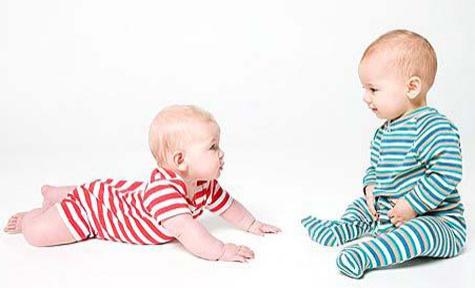Some parents are so bothered by these stereotypes that they have consciously decided to raise their children in a gender-neutral environment.
But that's easier said than done, because traditional roles are hard to ignore.
There are mothers who have openly wondered whether boys simply love toy diggers because they are born with that instinct or because they were given a T-shirt with a digger on it soon after they were born.
Other parents are happy when their daughter takes on the task of building her own doll house. On the other hand, some parents and experts consider it a setback that a toymaker like Lego includes overtly feminine features such as cosmetic salons and lipstick in its sets for girls.
The debate is going on not only among parents, but also among scientists. The core question is to what extent do genes, hormones and upbringing determine the interests and behaviour of boys and girls?
Yes, there are gender differences in the brains of male and female children, according to US neuroscientist Lise Eliot in her book Pink Brain, Blue Brain. Eliot analysed numerous studies in researching her book, concluding that the differences are minor. Gender stereotypes form in the pliable brain of a child initially through observation of their environment.
"In our society, gender is among the things that are identity-forming. It is irritating, for example, when we don't know whether a person we encounter somewhere in public is a man or a woman," said Hannelore Faulstich-Wieland, professor of education at the University of Hamburg. It is important for children to have an orientation.
Another question is about forbidding children doing things that are overtly connected to one of the two genders - the classic "pink phase" that girls go through, for example. If it's important for a girl to have a "pink phase" together with her girlfriends, the professor says that shouldn't be forbidden.
The same goes when a girl wants to play football, said Faulstich-Wieland. "They should be told they are a proper girl or a proper boy no matter what they are interested in. I think parents should handle it in a relaxed way."
There is one thing she wishes the toy industry would do - refrain from putting any gender attribution on their toys.
Some things remain firmly fixed about gender role. This comes out in particular when it comes to choosing a career. Girls shy away from mathematical and technical occupations, while fewer boys go into social fields. The variety of toys a child has plays a role in forming impressions in the child. However, that alone is not a decisive factor.
When children are able to have experiences early in life with technical things or experimentation, their interest in related professions goes up, educators say.
However, when a girl receives a toolbox as a gift and she never sees a woman with a hammer in her hand, then the girl probably will never play with the toy toolbox. These things depend on how stereotypical the roles are in the girl's family.
Educators also know that early in their lives children want to find out how boys and girls are different.
"The formation of identity begins when children are at a young age. Initially, it is about ego and the boundaries of other people," said Karin Jacob of a consultation centre for families in Berlin.
"I believe that society has become more open and there is more freedom, but I also think that boys and girls are still brought up differently," said Jacob. "The toy industry, with its separate worlds for boys and girls, can only be successful when it connects with something in us as parents."



















__small.png)










